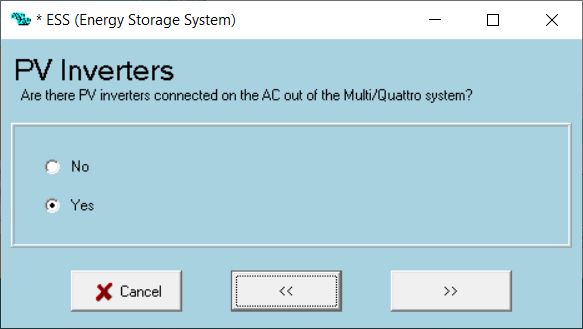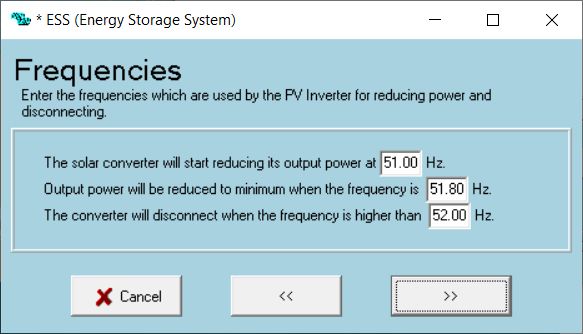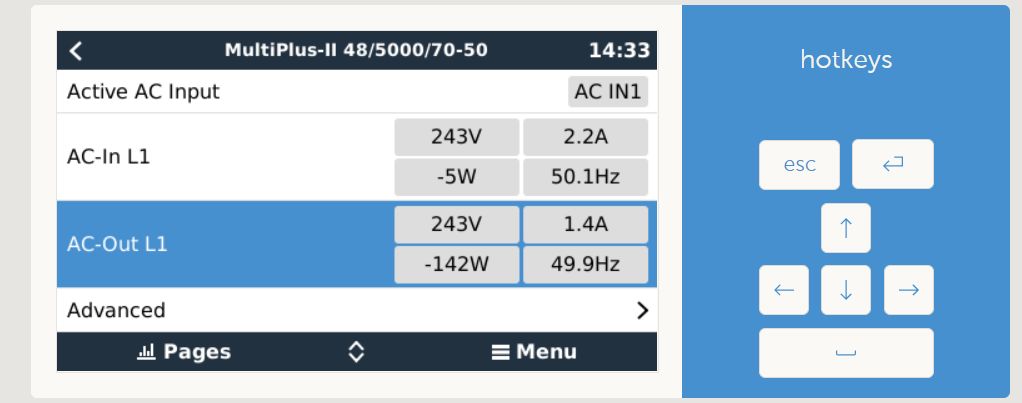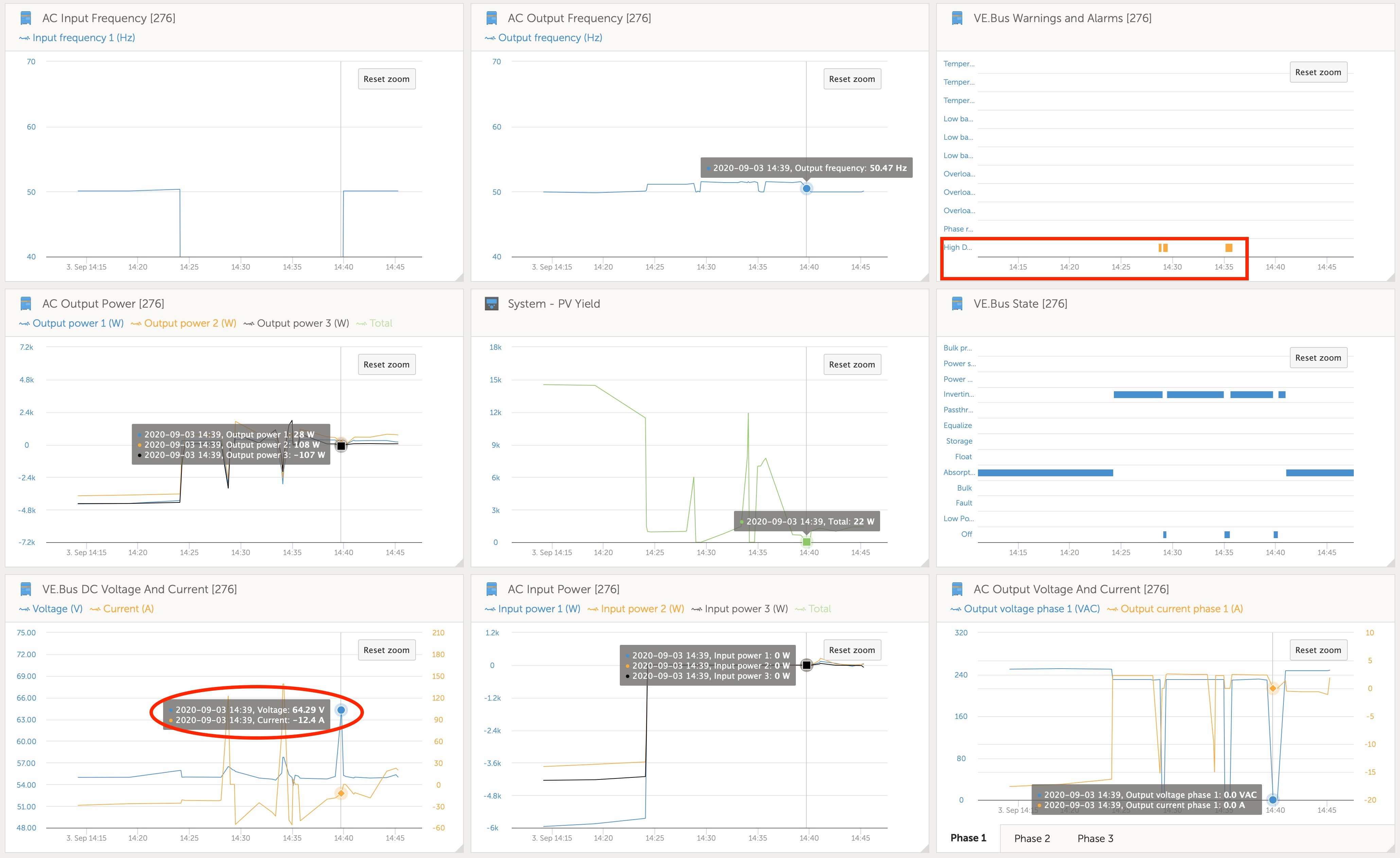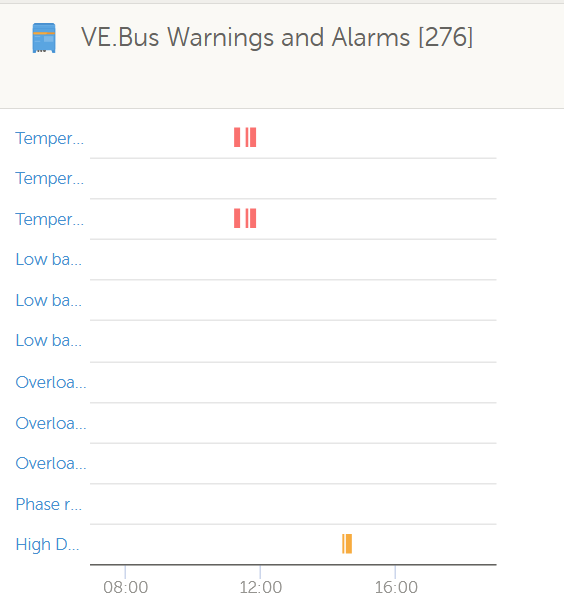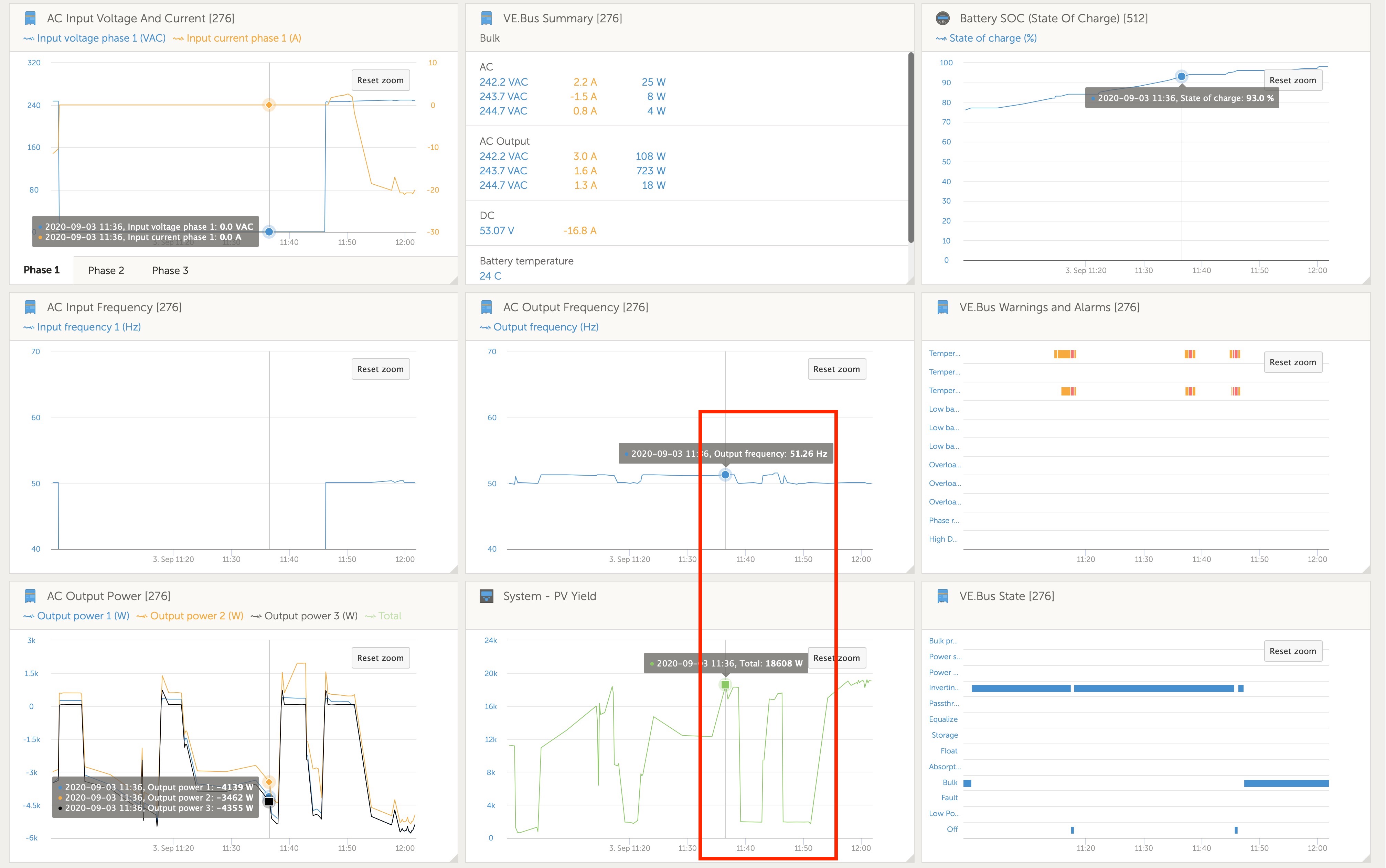I have a 3 phase Multiplus II 5kVA ESS system with 28kWh of BYD battery, 15kW of AC coupled PV on the AC-OUT of the Multiplus II's and 2kW of DC coupled PV. I believe I am compliant to all of the Victron design guidelines for this system.
During a grid failure, the AC coupled PV flows into the batteries until the Multiplus II's decide that they are running too hot and shut down. This then causes a complete power failure.
How can I either:
a) Get the system to dial back the AC coupled PV through frequency shifting so that the Multiplus II's don't go into temperature overload
or b) limit the charge current to the batteries during a grid failure? I already have a "Maximum Charge Current" set under the DVCC settings but seems this is ignored during a grid failure.
EDIT:
To be clear, my assertion is that the Victron doesn't even try to use frequency shifting to avoid inverter overload when charging the batteries.
Thanks in advance

